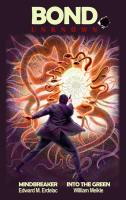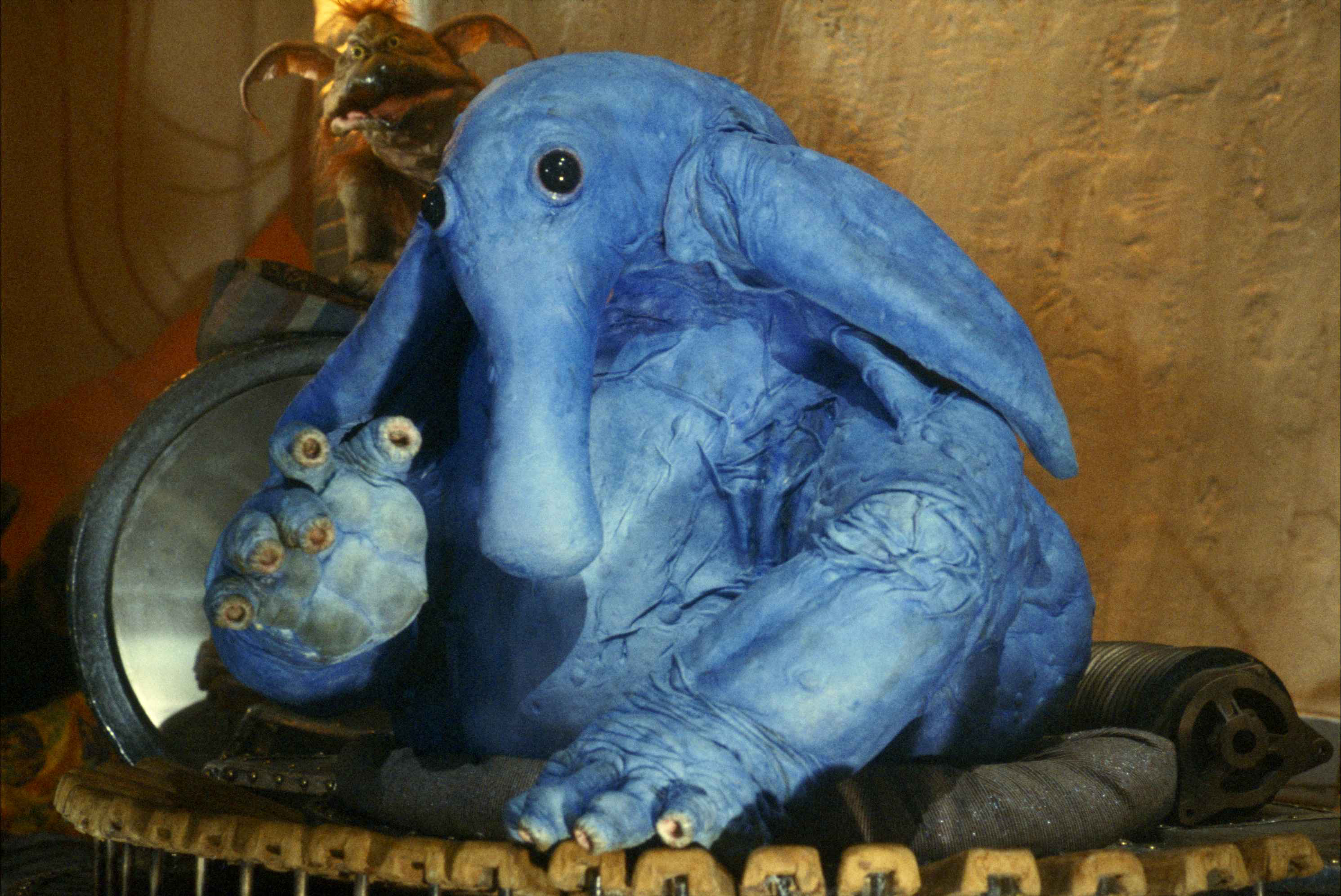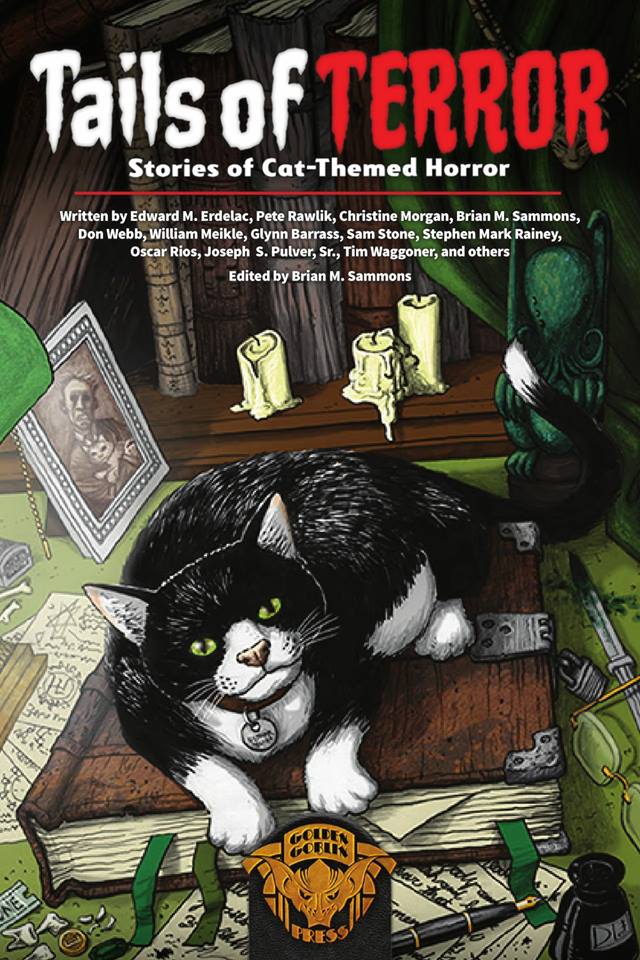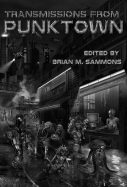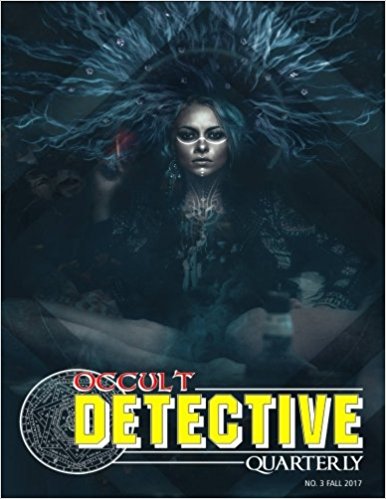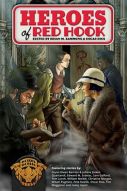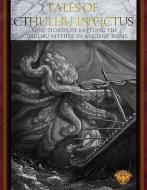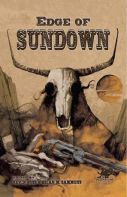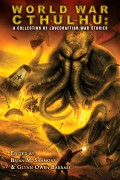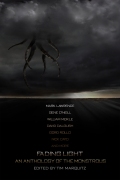It occurred to me that I began this blog long after my first work was ever published, so I’ve never written about my debut novella, Dubaku from Damnation Books.
Ah well, better late than never.
In 1760 somewhere near the Bight Of Benin, Dubaku, a powerful African shaman belonging to an obscure interior tribe (the Waziri, whom certain readers may be familiar with by name) surrenders himself willingly to an English slaving expedition.
 Dubaku has come in search of his wife Zuberi, an Aja warrior woman of the Dahomey Amazons, abducted and sold to another party of whites by her brother for marrying Dubaku in place of Mwenye’s best friend, to whom she was betrothed. Not knowing one ship from another, Dubaku boards the slaver hoping to find her.
Dubaku has come in search of his wife Zuberi, an Aja warrior woman of the Dahomey Amazons, abducted and sold to another party of whites by her brother for marrying Dubaku in place of Mwenye’s best friend, to whom she was betrothed. Not knowing one ship from another, Dubaku boards the slaver hoping to find her.
The captain, a cruel and careless man named Bryce, mistrusts Dubaku and his imperious bearing immediately, and when a rampant sickness takes its toll on the superstitious crew and their human cargo midway through the voyage to Jamaica, Bryce decides to offer up the shaman to the sea as their Jonah.
But when a violent squall drowns the entire compliment of would-be slaves, Dubaku calls upon dark and terrible powers to enact a fitting vengeance on Captain Bryce and his men.
Dubaku is a work of horror fiction, but like much of the horror I write, the most heinous parts are true. If there ever was a more reprehensible and morally depraved institution as human chattel slavery (in all its forms, many of which continue to this very day), I haven’t seen it yet, and hope I never do.
Writing Dubaku changed my life, as it was my first published standalone work. But researching it was a harrowing experience in and of itself. There is a horror and there is Horror, and the latter has nothing to do with zombies and everything to do with men who ignore the basic human rights of their fellow men.
Here’s an excerpt –
Dubaku had seen strange things in his journeys. He had trucked with spirits under the tutelage of Subira. The deep magic of his father’s people was now married to the wild rituals of Vodoun in his heart. As the dirty fat man prodded him and the other Aja into the waiting boat, he touched the concealed packet he had brought with him, and it was as though he could feel the magic of its contents throbbing like a living heart. He prayed to the Dahomey lwa and to the spirits of his ancestors and to the deepest Waziri powers he knew of that he had all he needed, and that the whites would not discover it.
 They were brought to the tall ship, men, women, and children, most too stunned by their capture to fight or protest. They were roughly ushered onto the decks and herded into pairs, where a blue-armed man fit shackles about their ankles and ran long lengths of chain through them. Next, a dented tin pannikin was jammed into their tremulous hands. A disinterested sailor sloppily ladled water from a barrel into it, which mattered little as their shaking and the jostling of the bodies meant that they spilled most of it anyway.
They were brought to the tall ship, men, women, and children, most too stunned by their capture to fight or protest. They were roughly ushered onto the decks and herded into pairs, where a blue-armed man fit shackles about their ankles and ran long lengths of chain through them. Next, a dented tin pannikin was jammed into their tremulous hands. A disinterested sailor sloppily ladled water from a barrel into it, which mattered little as their shaking and the jostling of the bodies meant that they spilled most of it anyway.
Then the hatch was thrown open, and for the Aja it was terrifying – like the wooden maw of a creaking, big bellied sea beast waking to swallow them whole. This beast breathed out a hot blast of putrid stink – the noisome smell of sweat and excrement and death and sickness, like the breath of some pestilential entity native to the inferno.
There was no light down below, only the shaky glow of the whale oil lamps the sailors lit and carried with them. The Aja were pushed and pulled down into the deceptively cavernous mouth, and there found that in fact there was no room at all.
Waves of them were force-fed into the ship’s groaning timber bowels. The swinging light of the lamps cast a faltering glow on the floor, which was carpeted in row upon row of swooning black bodies. They tread upon the bare skin of exhausted figures who recoiled at their touch or else lay in the stiff cold of death, bones snapping beneath their collective weight. Women whimpered and clutched at each other, and the weeping of the children was redoubled.
What was this strange precinct of hell into which they had been brought? What cave, carpeted in barely perceived forms that shifted and struck out like irritated sleepers? Chains clinked and voices moaned, begging for water and gripping at the pantaloons of the white men only to be clouted down. Others pulled the water tins away from the newcomers and avariciously sucked the precious wetness from them in the dark.
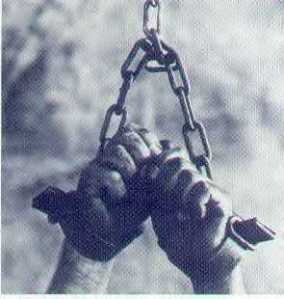 It was hot from the press of the bodies. Bodies, all around, stretching on down the dark passage. They could not step without treading upon another or slipping in drek and waste. Still, they were pulled through the utter darkness by the hunched over sailors, and now some pairs were yanked down and told to sit with their knees up against their chest. They found that their allotted space was very little, and they were pressed on every side by slaves sitting in the same posture so that they could not shift at all for want of comfort. Unfamiliar heads lolled against them on exhausted necks. Crowds of biting lice jumped from their neighbors onto their skin as soon as they settled, and this could not be helped.
It was hot from the press of the bodies. Bodies, all around, stretching on down the dark passage. They could not step without treading upon another or slipping in drek and waste. Still, they were pulled through the utter darkness by the hunched over sailors, and now some pairs were yanked down and told to sit with their knees up against their chest. They found that their allotted space was very little, and they were pressed on every side by slaves sitting in the same posture so that they could not shift at all for want of comfort. Unfamiliar heads lolled against them on exhausted necks. Crowds of biting lice jumped from their neighbors onto their skin as soon as they settled, and this could not be helped.
Their chains were run through iron rungs in the floor and they could not stand. Some tried when the slavers moved on with the others, only to dash their heads on the low ceiling and fall back down senseless.
Dubaku and another man were the last. They stood listening to the commotion below the deck until the last of the hundred Aja had been packed in. The sailors tore away Dubaku’s cloak and necklace.
They fitted them both with chains and Dubaku stared up the tall mast at the sky, which was filled with crying, wheeling gulls, and prayed Zuberi was alive and wherever they were bound. The man beside him trembled and wept. Urine rained down his bare legs and splashed Dubaku’s foot. The white men jeered and kicked them both, until the little captain climbed aboard and told them to cease.
The little captain stood before him and smiling, nodded to the fat man, who took up a lantern. Dubaku and his partner were seized and taken down below deck, amid the chaos that therein dwelt. Some tried to take his sloshing pannikin, but he slapped them away. Dubaku heard the voice of the fat man close, and felt a hairy fist strike his lips. They forced him to sit and chained him to the floor. He tasted blood.
 He watched the bulky shadow of the fat man and his lamp make its way back toward the faraway square of fading light that shone down the hatch through which they’d passed. The fat man went up the ladder and in a moment the hatch slammed shut. They were all in complete darkness and some screamed louder than before. He tried to yell above them, tried to bring order somehow, but it was useless. They babbled in a half dozen languages of which he mostly knew nothing.
He watched the bulky shadow of the fat man and his lamp make its way back toward the faraway square of fading light that shone down the hatch through which they’d passed. The fat man went up the ladder and in a moment the hatch slammed shut. They were all in complete darkness and some screamed louder than before. He tried to yell above them, tried to bring order somehow, but it was useless. They babbled in a half dozen languages of which he mostly knew nothing.
He touched his forehead to his knees as the vermin, emboldened by the reinforcement of the shadow, began to scuttle over his feet. He prayed once more to all the lwa that his wife and child lived somewhere.
—
What some people said of Dubaku –
‘The suspense and pace of the story never relents…the pace is incredibly fast and the scare is compacted into a few short bloody pages to create a
heart-pounding read.’ –Kelly Fann, Monsterlibrarian.com
‘Erdelac has written a haunting novella filled with magic (both black and white), death and humanity. For in the end it is all about what humanity really is, and whether or not God or Gods listen to prayers and answer them.’ –Bitten By Books
‘Erdelac’s voodoo-tinged revenge tale features…a “Death Ship” scenario that makes the “Death Ship” films look like unaired episodes of The Love Boat.’ – The Horror Fiction Review
You can pick it up from Damnationbooks.com or here at Amazon in print or Kindle –








